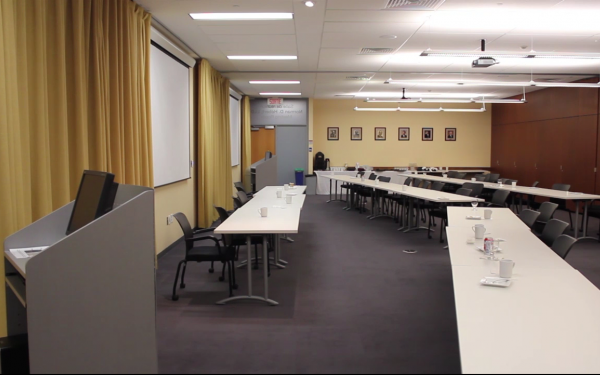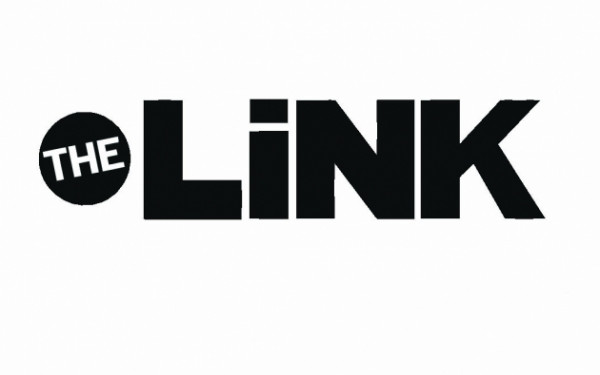Talking With Presidents III
Lex & Lowy Discuss BoG, Strikes and R-E-S-P-E-C-T
Laura Beeston sat with Concordia’s President and the Concordia Student Union’s president in what is the third part of the Talking With Presidents series. You can find the full interviews here.
FREDERICK LOWY
Interim President
What efforts for compromise do you think can be made between students and the Board of Governors?
Well, first of all my colleagues and I in the administration miss no opportunity to talk and interact with student leaders. My door is open to them. [VPs] meet frequently with the Concordia Student Union and Graduate Students’ Association. Communication is open.
We recognize there are issues in which there are differences in point of view; that’s normal. As long as communication is open and there is respect on both sides, sometimes these issues can be resolved. Sometimes they’re not so easily resolved.
What do you think the relationship should be between students and the administration?
There is friction. You might be in a better position than I to say where the friction originates. I don’t think you can get away from friction, and here’s an example, I think that protest is fine and people are entitled to their views. All we have to do is ensure we behave towards each other with respect and that does happen.
If all the universities in Canada object to certain things like filming and broadcasting, you might ask why and I think the answer is—[and a number of people have made this point] that most members feel that if they give their time voluntarily to Concordia, hours of time, they want to speak freely and not worry about how their words are going to be taken by anybody.
That’s just it. They’re not a public body like a National Assembly or a Government of Canada department.
In the spirit of compromise, then, have there been any other ideas or methods to keep the Board as open as possible and as transparent?
This is as open as possible without destroying the whole function of the Board. Every decision made by the Board is public. There are minutes and they are public, they’re actually very good. So all the decisions of the Board are there. What isn’t there is how we arrived at those decisions.
You don’t think there’s any credibility to the idea that if they’re not comfortable saying it in front of the entire school body they shouldn’t be saying it?
Take what you just said and take it further.
If you want people to give time from their jobs and families and come to Concordia and help us, in governing and representing the university to government and donors, if you want them to do that you have to provide a forum for decision-making that allows for free speech and encourages free speech and not guarded speech.
If you’re in a courtroom you have to be very careful. That’s not the kind of atmosphere that we want at the board.
What kind of contingency plans has Concordia made in the event of a prolonged strike?
There’s a lot of communication between the administration and the CSU.
First of all, we recognize, and have no problem with and applaud students’ rights to protest something that they don’t like. We recognize there are diverse opinions and if students feel, as they do, that they’re against the tuition fee increases, they have every right to indicate that.
If they want to indicate that through withdrawal from classes, that’s their right; people drop out of lectures and classes all year. That’s up to them.
But as we’ve said to the CSU, just like people have a right to protest, people have a right to choose not to protest and come to class. These are two rights and we’ll try to accommodate both rights.
_807_700_90.jpg)
LEX GILL
Concordia Student Union President
Can I get your comment about the Board meeting on Friday? Do you think it was a success for you and for your demands? How do you feel about the way that the walk-out happened?
I’m disappointed that there were conversations about transparency in closed session. I’m disappointed that the Board has spent months on this issue of filming, and of reporting to students and the community about what happens in those meetings. There have been massive amounts of criticism, and we’ve tried everything, you know?
We’ve made committees, we’ve put forward proposals and we’ve asked very politely. We’ve asked very aggressively. And there was nothing on the agenda about this.
Students organized themselves with the support of student governors to come and film the meetings themselves and the response was to shut down and discuss that secretly, and that’s what’s disappointing. But it’s frustrating we’ve gotten to this point where that tactic got involved.
This tactic as well, it’s enormously costly in terms of volunteer time of external members. Do you foresee there could be efforts to compromise and find middle ground on this issue?
I’m hoping to put together a proposal and speak to some external Board members before [the next meeting].
There are obviously some people who just don’t get it. They don’t understand, I believe I have heard the words, “Transparency is the opposite of good governance,” come out of the mouths of a couple of people at this point.
And those people will never get it, but I think that the reasonable people on the Board will understand this is a reasonable demand. It’s not radical.
What do you think of the theory that BoG members would not feel able to speak freely if meetings were filmed?
First of all, in open session and meetings, they could already very well be recorded. Journalists are there and record what they say and the things they do.
I think it’s also important to note that the people who sit on the Board are public figures, right? They engage in all kinds of public activities, they have reputations in the community, and I simply have trouble understanding why they would be so concerned about what they say on the Board of Concordia.
More than that, I think that a lot of external governors generally are missing the point that if you want to have private, frank discussions that you think might be inappropriate or damaging to someone’s reputation, you can do it in closed session. We’ve never asked to film closed session.
As governors, and as someone who has my own board to report to I understand the importance of having that kind of confidentiality when you need it.
Do you have any predictions for the next meeting to ensure that this standstill doesn’t happen again? Or are you still going to put up a hard press for the next meeting?
The student governors haven’t met to talk about it. I want to move forward productively. To me, playing the quorum game is not a solution, it was delaying a motion that we felt would be uncomfortable to let pass without the public understanding it.
It was a moral dilemma, but that’s not a solution. That delays the issue. So I think we need to come up with some constructive ways of putting the issue back on the table and having an actual conversation about it at the next meeting. But that takes everyone cooperating, not just us.

_900_600_90.jpg)



web_600_375_90_s_c1.jpg)

2_600_375_90_s_c1.jpg)